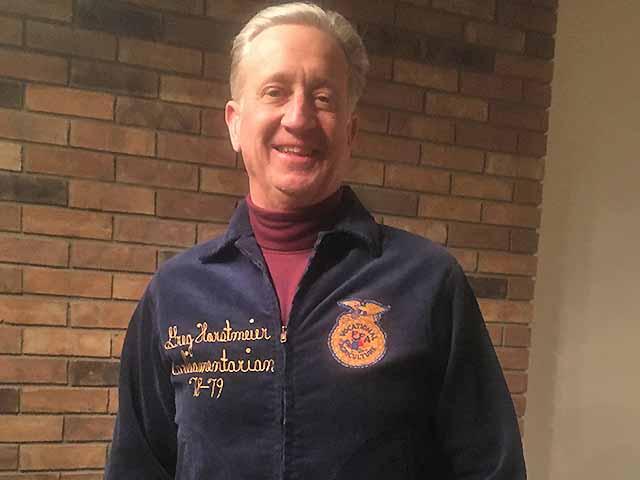Letters to the Editor
Inflation Reduction Act Fund for Ag May Be in Jeopardy
The views expressed are those of the individual authors and not necessarily those of DTN, its management or employees.
**
To the Editor:
The Inflation Reduction Act invested in rural America. Now, those funds may be in jeopardy.
"A changing climate, characterized by more frequent and severe extreme events such as heatwaves, droughts, and extreme rainfall, will affect U.S. agriculture, food systems, and rural communities." That is the opening line of the recently released Fifth National Climate Assessment's section on agriculture.
As farmers, we are concerned. Whether our crops come to harvest or our livestock make it to market is directly tied to the cycles of nature that we try our best to work within. The climate is changing, and it's time to take that seriously.
P[L1] D[0x0] M[300x250] OOP[F] ADUNIT[] T[]
Each year, we lose 4.6 tons of American agricultural soil per acre, costing farmers and ranchers $44 billion annually and taxpayers nearly $100 billion. The loss of healthy soil is both a symptom and a cause of this unfolding climate disaster, but there is a solution.
Last year, the Inflation Reduction Act (IRA) made a historic investment in agriculture and farming communities, providing nearly $20 billion to federal conservation programs. USDA conservation programs are popular with farmers and ranchers because these voluntary, incentive-based programs are extremely effective at providing us with the resources we need to rebuild healthy soil, improve water quality, enhance wildlife habitat, and much more. Yet, they have long been underfunded; so much so that nationally, as many as 75% (https://www.nwf.org/…) of qualified applicants are turned away from some programs.
Farmers and ranchers are already benefiting from this investment, and in turn, the country will benefit as well. Yet now, we are hearing that this funding is at risk as members of Congress eye these funds to further subsidize our nation's largest farms.
Soil may not immediately come to mind as something vital to our national health, safety, and prosperity. Still, President Franklin Roosevelt once said, "The nation that destroys its soil destroys itself." These words grow truer each year. Farmers are forced to use increasing amounts of fertilizer to salvage profit from the degraded soil. This overuse of fertilizer and chemicals saps our food of nutrients (https://landresources.montana.edu/…) and causes vast environmental damage -- pumping carbon into the atmosphere, polluting waterways, and hampering farming and daily life (https://agricultureandfoodsecurity.biomedcentral.com/…). At the same time, skyrocketing input costs squeeze farmers' margins, hurting rural economies and jacking up food prices for consumers.
These issues transcend politics; it's a matter of survival. Farmers like us are on the frontlines, and these threats endanger our livelihoods. The IRA provided a much-needed resource to fight back, in the form of financial support to regenerate our lands, not degrade them for profit.
Nine years ago, Rick observed how extreme weather eroded his fields in Indiana, where he cultivated his row crops like corn, alfalfa, and wheat. Devastating weather became routine, decimating crops year after year. As a fifth-generation farmer, Rick knew he had to make a change to ensure the family farm's future. Rick did some digging, leading him to discover regenerative agriculture.
Regenerative agriculture (https://kisstheground.com/…) is an approach to farming and ranching that emulates nature through fundamental principles and practices. It involves keeping ground covered, integrating animals, eliminating tilling, and planting cover crops and perennials, resulting in healthier soil, increased biodiversity, reduced chemical inputs, and resilience to climate change. What started as a way to keep the family farm alive became a path towards a new way of life when Rick realized regenerative agriculture not only rejuvenated his soil, but also significantly increased his profit margins.
Wayne's path to regenerative agriculture was also intuitive. His paternal grandparents were from farming families in Virginia and arrived in Southern New Jersey during the "Great Migration" north. The Swansons raised a family on a small diverse farm. Once out of college and in the workforce, Wayne instinctively did what he'd seen his relatives do: he started farming. Wayne's grandparents showed him a blueprint for regenerative agriculture, only they didn't have a name for it. To Claude and Artie, it was just farming, and everything on their farm had a job to do, including soil.
While we hold differing political views -- Wayne is a Democrat and Rick is a Republican -- we're seeing the same thing on the farms around us and across the country -- the effects of a changing climate threaten to destabilize our food system more and more each year. Both have been working to advance regenerative agriculture policy at the federal level through Regenerate America (https://kisstheground.com/…). Regenerative agriculture represents a brighter future for American farming, but we need Congress to embrace it. Millions of dollars from the IRA have already gone out the door to farmers and landowners. Congress must keep its promise to America's farmers, protect these funds for conservation, and support the responsible stewardship of our working lands.
Farmers are resilient. We seek solutions and act decisively when confronted with challenges. We implore Washington to do the same -- unite on this common ground issue -- and invest in a climate-resilient future. The very foundation of our nation is at stake.
Wayne Swanson Jr. is a cattle rancher outside Atlanta, Georgia, an advocate for Black farmers, and a Democrat.
Rick Clark is a Republican fifth-generation farmer with 7,000 acres of row crops in Warren County, Indiana. Both are leaders in Regenerate America, a coalition convened by Kiss the Ground (https://kisstheground.com).
**
Letters may be emailed to edit@dtn.com or mailed to Greg Horstmeier, DTN, 18205 Capitol Avenue, Omaha, NE 68022.
(c) Copyright 2024 DTN, LLC. All rights reserved.



